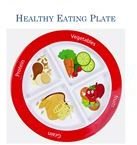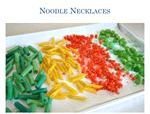In preschool and primary grade classes, the teacher should always ask as many open-ended questions as he or she can, and should encourage students to ask open-ended questions.
Teaching students to think about bigger ideas or patterns is always a challenge, but with open-ended questions, students learn to observe the world around them. The benefit to these questions is that there is no wrong answer and as such, students gain confidence in themselves.
The Game of What?
Open ended questions encourage STEM learning. Make a "Game of What" poster to display in your classroom setting. The poster should contain all of the questions below.
- What did you see happen?
- What did you try?
- What things do you notice about ___?
- another way to do this?
- What has changed now?
- What do you think caused ___?
- What do you think ___ might do?
- What might happen if we ___?
- What did you learn?
Use at least two of these questions daily and teach students to ask these questions of each other!
You'll be amazed at how much they learn!Science Activity
Science involves- Observation of natural surroundings
- Using fine motor skills
- Using gross motor skills
- Learning about healthy diet, exercise and eating
Our first game is entitled “What’s on My Plate?" and has a STEM science focus.Give each student a white, dinner-sized paper plate and a small white dessert plate. Have a brief class conversation, asking what are “Everyday Foods," such as milk, bread, fruit and cheese and what are “Sometimes Foods," such as ice cream, cake or chips.Ask what students like to eat for breakfast or as a special snack. Have students draw a plate of “Everyday food" on their dinner plates using crayons. Have students draw a picture of their special snack food on their dessert plates. Display plates on a dinner table themed bulletin board to remind students about nutrition habits.Engineering Activity
Here are some ideas on how to teach engineering in the primary grades:- Block towers
- Car ramps built from blocks
- Tinker Toys and Lincoln Logs
- Pillow forts
- Tents for camping indoors
Play a STEM engineering game centered on ramps. Line your students up in pairs of two and take them for a walk around the school. Ask them to look for places where there are stairs and where there are ramps.Come back to the classroom and show them a rolling cart or chair. Ask the students what they would have to do to take this chair up a set of stairs. Ask what they would have to do to take this chair on a ramp. Then, give each pair of students a bag of blocks and a small toy car. Have them build a ramp out of the blocks that the toy car can roll down.Technology Activity
Some of the technology young students can learn about is...- Tooth brushing
- Phone dialing
- Touch games on a leap pad or tablet
- Simple coding games
- Sing-alongs with DVDs
Try a technology-based application centered on dinosaurs and coding.Daisy the Dinosaur is an early coding app designed for iPads. By dragging and dropping simple directions, such as “jump," “spin," “repeat five" and so on, students can make the tiny dinosaur move across the screen. Once they learn the control board, they can make her do all sorts of tricks. The free app is a great early introduction to coding technology for students.Math Activity
Incorporate more math activities into your classroom with these ideas- Beaded or macaroni necklaces that follow a pattern
- Paper dolls with buttons glued on at precise places
- Grocery shopping corners with bins divided by amounts
- Play money sorted into piles
Finally, get creative with STEM math by making noodle necklaces. This project is perfect during the holiday season or around Mother’s Day because students can create a noodle necklace for their mother or grandmother.
see more at:
http://www.brighthubeducation.com/pre-k-and-k-lesson-plans/128861-hands-on-stem-lessons-for-preschool/?cid=parsely_rec




